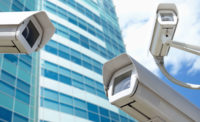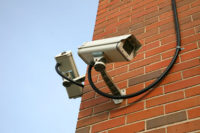With a new law, the German government wants to prevent employers from secretly videotaping their employees. But experts are criticizing the legislation, saying it still allows surveillance.
"Secret surveillance of employees can no longer be permitted in Germany," said Michael Frieser, an expert on the subject with the conservative Christian Social Union (CSU), the sister party of Chancellor Angela Merkel's Christian Democratic Union (CDU).
Merkel's coalition has promised more legal certainty over video surveillance for both employers and employees by clearing up existing gray areas. The German parliament, the Bundestag, is scheduled to vote on the legislation by the end of January.
Companies such as the supermarket chain Lidl and the telecommunications giant Deutsche Telekom have sparked controversy by secretly filming their employees.
The draft legislation aims to make these controversies a thing of the past. Surveillance of any kind in private areas - such as changing rooms, sleeping areas and restrooms - would be totally banned by the new law.
Even publicized surveillance would be held to strict standards. Under the legislation, such surveillance could not be used to check the behavior or performance of employees, according to Gisela Piltz of the Free Democratic Party (FDP).
However, the legislation still permits some concealed cameras in the workplace, causing some critics to say the new law does not go far enough.







